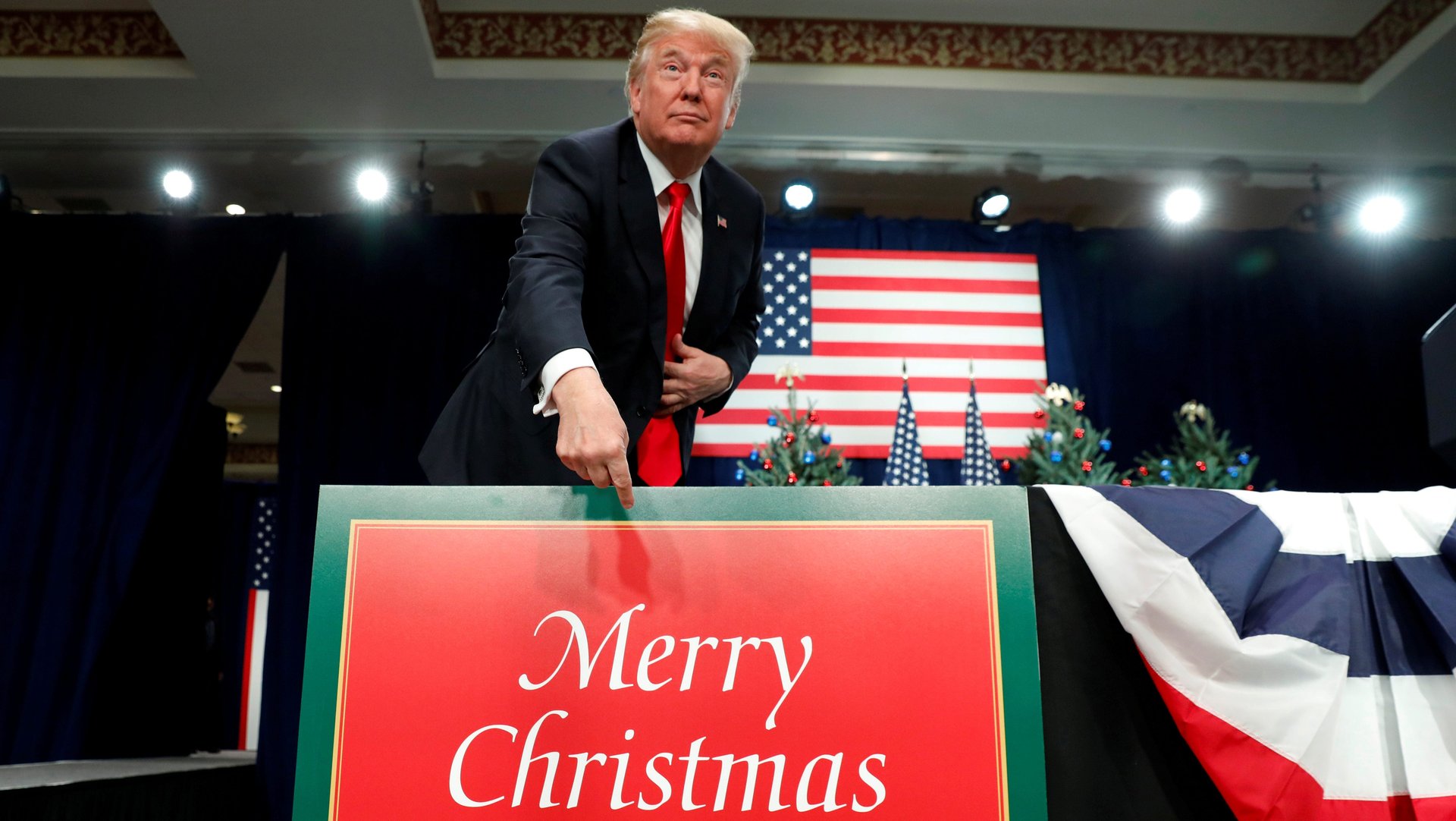America’s top CEOs don’t plan to invest their tax windfalls in America
America’s CEOs have soured on Donald Trump. The onetime real-estate developer/reality TV star—whose enterprises have declared bankruptcy at least six times—luxuriated in a brief honeymoon with the business community after ascending to the White House. No longer.


America’s CEOs have soured on Donald Trump. The onetime real-estate developer/reality TV star—whose enterprises have declared bankruptcy at least six times—luxuriated in a brief honeymoon with the business community after ascending to the White House. No longer.
At the annual Yale CEO Summit on Dec. 13-14, more than a hundred of the country’s top executives—running the gamut from Black & Decker to UPS—roundly panned Trump’s performance as an “embarrassment” on issues from foreign policy to trade.
Yale School of Management professor Jeffrey Sonnenfeld, who leads the event, said most chief executives felt the Trump administration had opted for saber rattling and empty populism over truly defending US interests. Tax reform, as it finally emerged in the Republican plan, was singled out as one of the biggest disappointments. ”Last year, there was so much enthusiasm about prospects of tax reform,” Sonnenfeld told Quartz. “I was astounded at how disappointed they were.”
The GOP had sold its signature tax bill, which passed this week along party lines, as rocket fuel for the economy by lowering corporate taxes so business can plow that money back into their domestic operations.
That’s not how many CEOs (or economists) see it. Of more than 100 executives in a Yale survey, 86% said their firms would not “immediately make large domestic capital investments” if the tax bill was passed. They spared few critiques of the bill: 71% said it was “wrong for this package to add so much to the nation’s debt,” 62% called its treatment of state and local taxes “an unfair attack on blue states,” and 62% were “concerned about the health care impact of the tax proposal.”
And yet a slight majority of the 120 respondents—55%—said “the proposed tax-reform package should be signed into law.” Apparently, a rich package of lower taxes and handouts for corporations was too much to refuse. (The new law slashes the US corporate rate by 40%, creating a $1.3-trillion windfall for companies.)
Yale’s survey, conducted every year, in 2017 included the CEOs of top US accounting, financial, food, vehicle, retail and telecom companies.
Many chief executives, whatever their private misgivings, were quick to tweet out their plans to spend tax savings that echoed White House rhetoric likely aimed at currying favor with the Administration. Companies such as Boeing and AT&T–lobbying, respectively, for defense contracts and merger approval–were particularly explicit about their #TaxReform plans.
Still, economists—and corporate leaders themselves—warn that the windfall is far more likely to line the pockets of executives and shareholders than prop up workers’ paychecks. That sentiment shows up in public polling. The 2017 tax bill is the least popular piece of major legislation in 30 years, rivaling only tax hikes signed by Bill Clinton and George W. Bush.